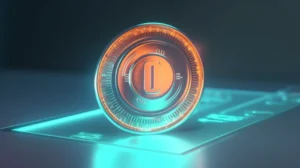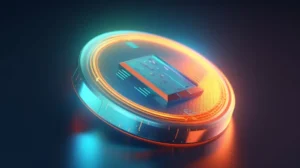Can NFTs be copyrighted?
NFTs, or non-fungible tokens, have emerged as a popular form of cryptocurrency that represents digital ownership of art, music, and other creative works. NFTs are unique, one-of-a-kind digital assets that are verified on a blockchain network, making them immutable and secure. The popularity of NFTs has grown rapidly in recent years, with some pieces of digital art selling for millions of dollars.
However, with the rise of NFTs comes the question of copyright. Copyright law protects original works of authorship, such as books, music, and artwork, by giving the creator of the work the exclusive right to reproduce, distribute, and display the work. In this article, we will explore the relationship between NFTs and copyright law.
Definition of copyright
Copyright is a legal concept that grants the creator of an original work exclusive rights to that work. Copyright law protects a wide range of creative works, including literary, musical, and artistic works. Copyright protection extends to both published and unpublished works.
The types of works protected by copyright law include books, music, paintings, sculptures, photographs, and films. Copyright protection also applies to digital works, such as software, websites, and video games.
There are limitations and exceptions to copyright, such as fair use, which allows for limited use of copyrighted material without permission for purposes such as criticism, comment, news reporting, teaching, scholarship, or research.
Copyright and NFTs
Can NFTs be considered as a form of copyrightable work?
The question of whether NFTs can be considered a form of copyrightable work is a complex one. Some argue that NFTs are not copyrightable because they are not original works of authorship. Others argue that NFTs are copyrightable because they represent a unique digital asset that is owned by the creator.
There are also legal implications to copyrighting NFTs. By copyrighting an NFT, the owner of the NFT would have exclusive rights to that digital asset, including the right to reproduce, distribute, and display the NFT. This would make it difficult for others to use the NFT without permission.
Challenges in Copyrighting NFTs
Technical challenges in protecting NFTs
One of the biggest challenges in copyrighting NFTs is the technical challenge of protecting them. NFTs are stored on a blockchain network, which makes them difficult to alter or duplicate. However, there are still technical challenges in ensuring that the NFT is not copied or altered without permission.
Another challenge is the issue of ownership and transfer of NFTs. Unlike physical works of art, NFTs can be easily transferred from one owner to another. This raises questions about who owns the NFT and who has the right to transfer it.
Alternatives to Copyrighting NFTs
There are alternatives to copyrighting NFTs. One possibility is to trademark the NFT, which would give the creator of the NFT exclusive rights to use the name and logo associated with the NFT.
Another alternative is to use Creative Commons licenses, which allow creators to share their work with others while still retaining some rights to the work. This would allow creators to share their NFTs with others while still protecting their intellectual property rights.
Conclusion
In conclusion, the relationship between NFTs and copyright law is a complex one. While some argue that NFTs are not copyrightable, others argue that they are. There are technical challenges in protecting NFTs, and issues with ownership and transfer of NFTs.
Alternatives to copyrighting NFTs include trademarking and the use of Creative Commons licenses. As NFTs continue to gain popularity, it will be interesting to see how copyright law adapts to this new form of digital ownership.






